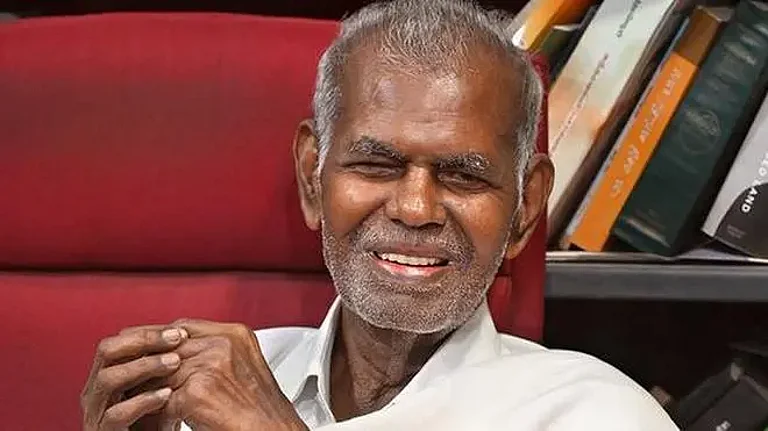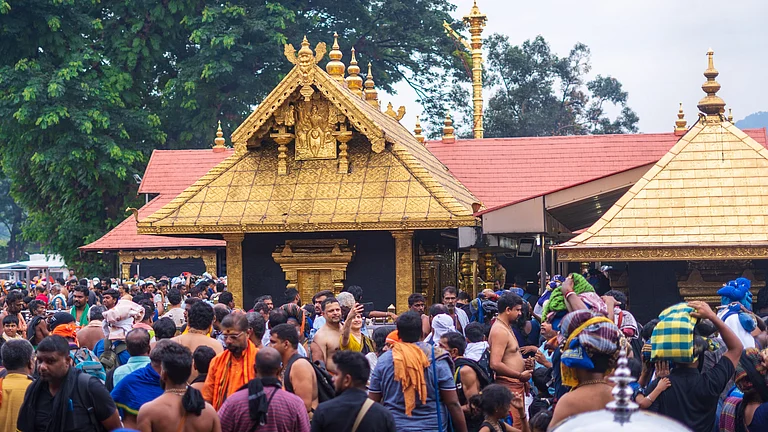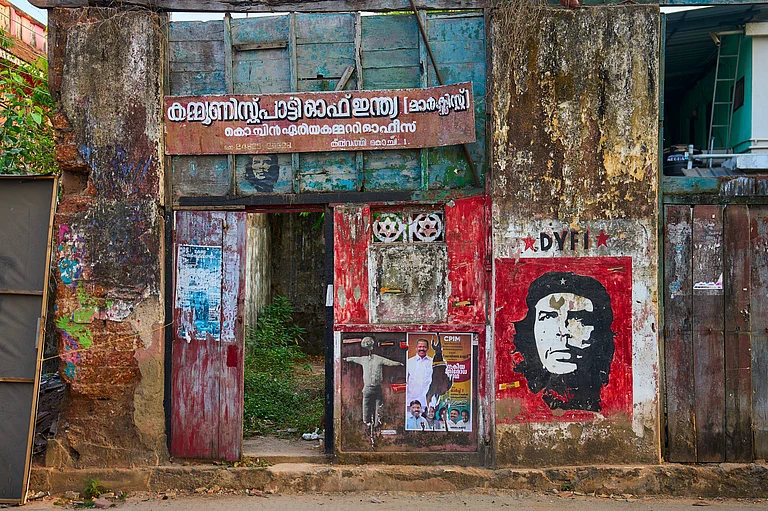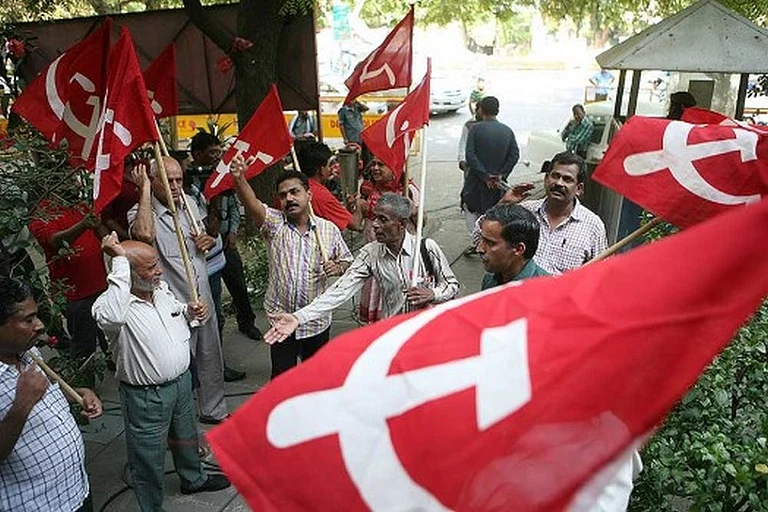
Summary of this article
The CPI is set to boycott the cabinet meeting over the government's move to implement the PM SHRI scheme, intensifying tensions within Kerala's ruling coalition and raising the stakes for the ongoing political standoff.
Chief Minister Pinarayi Vijayan’s attempts at mediating between warring coalition partners have so far failed, leaving a resolution elusive.
CPIM says the government is forced to sign the MoU out of fiscal need
The CPI(M)'s plan to implement the Centre’s PM SHRI scheme in Kerala’s schools has resulted in a dispute within the Left Democratic Front. In response, coalition partner CPI decided not to attend Cabinet meetings until the decision is reconsidered, indicating disagreement within the coalition, including four ministers and 16 MLAs. Chief Minister Pinarayi Vijayan attempted to address the dispute, but CPI’s concerns persist, highlighting potential consequences for the LDF’s stability.
With local elections approaching, the Left Democratic Front faces a notable political challenge. The situation could affect its electoral prospects and its public image of unity, characteristics often discussed in Kerala’s politics.
Until recently, CPI(M) harshly criticised PM SHRI as a covert effort to saffronise education. At the latest Cabinet meeting, CPI urged resistance to the Centre’s directive, preferring political and legal challenge. Critics allege CPI(M) softened its position after CM Vijayan’s meeting with the Prime Minister.
The PM SHRI (Pradhan Mantri Schools for Rising India) scheme, launched by the Modi government in 2022, aims to upgrade existing schools into model institutions aligned with the NEP framework. The Centre insists the project is voluntary and meant to enhance quality and infrastructure. Left critics view it as part of a broader ideological project to reshape the content and direction of public education in India.
The CPI(M) defends its decision by citing Kerala’s deepening fiscal crisis and what it describes as the Centre’s punitive attitude toward non-BJP-ruled states. According to the party, the Union government has deliberately withheld financial assistance to Kerala under various centrally sponsored schemes, tightening the fiscal noose around the state. The CPI(M) argues this financial squeeze is a form of political coercion meant to compel the state to fall in line with the Centre’s policy priorities, including the PM SHRI (Pradhan Mantri Schools for Rising India) scheme.
Funding Cut Short For SHRI?
According to Kerala government sources, the Modi government had withheld Rs 456.01 crore due to the state's non-participation in the PM SHRI initiative this fiscal year under the Samagra Shiksha education scheme.
The State is yet to receive Rs 513.54 crore for 2024-25 and Rs 188.58 crore for 2023-24. This totals Rs 1,158.13 crore.
According to General Education V. Sivankutty, about 40 lakh students from marginalised sections are directly affected by the Modi Government’s failure to disburse funds. Benefits to nearly 5.6 lakh Scheduled Caste and Scheduled Tribe students and special support, therapies, and assistive devices for 1.8 lakh differently abled students have been disrupted. Free uniform and textbook distribution, pre-primary education, teacher training, and examination conduct have also been affected.
Amid funding concerns, CPI(M) leaders state that compliance with the PM SHRI scheme is necessary to maintain central funding for social welfare. They present this as a practical response rather than as a shift in ideology. However, the CPI continues to express its reservations, indicating this could affect Left policies and is considering all options, including withdrawing ministers from government.
While opposition-ruled states such as Tamil Nadu and West Bengal have resisted the National Education Policy and refused to implement the PM SHRI scheme, Kerala’s quiet compliance has surprised many within the Left ecosystem. Even within the CPI(M), there is unease among some leaders over the haste and secrecy with which the state government signed the MoU with the Centre. Several party leaders have privately expressed concern that the move was neither discussed adequately within the party nor aligned with its stated ideological opposition to the NEP.
“The central government has long affected the state’s ability to have an independent educational policy. Kerala has not effectively resisted these measures,” states Dr J. Devika, Professor at the Centre for Development Studies. She notes that centralisation in education is an ongoing process.
For example, the Kerala government agreed to share student data with the Centre through the Automated Permanent Academic Account Registry (APAAR ID), a national database that some say reduces the state’s control over education records. “Tamil Nadu, by contrast,” she adds, “has developed its own student data portal, ‘Makkal’, to manage its educational records independently.”
Tamil Nadu And The NEP
Tamil Nadu, in contrast, has consistently opposed the National Education Policy (NEP) and its associated initiatives. Except for the BJP, all major political parties in the state have long resisted the three-language formula and the broader educational framework promoted by the Centre. Tamil Nadu has even approached the Supreme Court against the Union government for withholding over Rs 2,000 crore in funds due under the Samagra Shiksha Scheme. The state’s petition argues that Samagra Shiksha is not connected to either the NEP-2020 or the PM SHRI Schools Scheme, and therefore, the Centre’s action amounts to financial coercion.
Some critics of the Kerala government’s decision maintain that the LDF (Left Democratic Front) could have followed Tamil Nadu’s approach by pursuing legal options. They argue that by not joining Tamil Nadu’s petition, Kerala accepted the Centre’s education policy framework, which could impact the federal structure supported by the Left.
However, not everyone agrees with this comparison. T.T. Sreekumar, a political analyst and Professor at the Institute of Foreign Languages in Hyderabad, cautions against equating the two states’ situations.
“Tamil Nadu’s financial position is far stronger than Kerala’s, so the Centre’s withholding of funds does not have the same impact there,” he explains. According to him, it would be simplistic to interpret the CPI(M)’s decision as ideological capitulation to Hindutva merely because it has accepted certain central schemes under duress. “Even the CPI has not accused the government of going soft on Hindutva — their criticism is about process and principle, not ideological surrender,” he notes.
The signing of the MoU to implement the PM SHRI scheme has led to a significant issue within the Left Democratic Front. The CPI’s opposing position has resulted in a clear political disagreement, and some analysts suggest the matter extends beyond leadership issues. The Kerala situation demonstrates the challenges opposition-ruled states face in balancing policy objectives with fiscal constraints.
This situation highlights how financial decisions at the central level can affect state autonomy in India’s federal system. The LDF’s current experience shows that parties pursuing alternative governance approaches are sometimes constrained by central control, limiting the scope for independent policy-making.
























